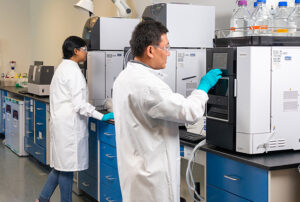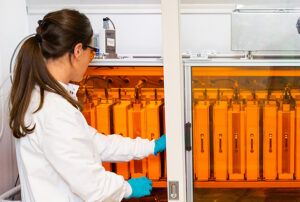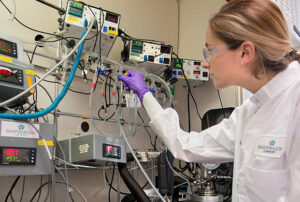A Continuous Hydrogenation Reactor Based on a Powdered Catalyst Enmeshed in an Expanded Poly (tetrafluoroethylene) Matrix
Fixed bed catalytic reactors are commonly used for hydrogenation in the commodity chemical industry, but adoption in the pharmaceutical industry has been limited by the lack of available catalyst pellets in sizes suitable both for process research and development at scales of 1–50 g substrate per experiment and also for to manufacturing at the metric ton scale.
In our recent Organic Process Research & Development article, we describe an approach for continuous flow hydrogenation using catalytic cartridges of powdered catalysts (palladium on carbon in this example) enmeshed in an expanded poly(tetrafluoroethylene) (ePTFE) matrix. Using a modular design, the catalytic layers and supplemental components can be arranged to suit specific reaction conditions, desired results, and throughput. We demonstrated the reactor with three classes of hydrogenation reactions – nitro reduction, debenzylation, and alkene reduction – in which all substrates could achieve high or full conversion after optimization.
Additionally, the study includes longevity experiments to understand the long-term reliability of the reactor as well as preliminary results for scaling up to a larger membrane size. The results make this technology promising for scale-up opportunities by using the same modular design.
To learn more about the results of this project, please read the full article in Organic Process Research & Development.




